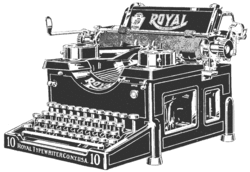Antirepression
Know your enemy!
Resist!
- PLACEMENT CUSTODY – not like lambs… Resist at mass detentions!
- Together Booklet to form Affinity Groups (April 2007)
- Antirepression Guide “Was tun wenns brennt” deutsch | english | greek | castellano | arabic | italiano | türkce | russian | francais | dutch
- Pepperspray, CS, & Other ‘Less-Lethal’ Weapons used by Rioting Police from autonomedical collective (2006, pdf)
- How to cope with being attacked by the police (2005, pdf)
- Translation Legal Terms (french – english – german – spanish – greek – russian)
Anti Repression Leaflets for Videoactivists and Photographers
Trauma
Media Training - How to give good interviews
The interview is the method by which the journalist tries to get what they want and also the means by which you must put your message across.
What we’re up against:
- Triviality: every media outlet shares the same principal aim: to expand it’s share of the market, it tries to do this by grabbing hold of people’s attention; this is why they concentrate more on events rather than issues
- Bias: Media is about pandering to the aims of the proprietors – there is no point talking to the boulevard press for example – but there are news outlets that we can use to our advantage. It is helpful to remember that newspapers are allowed to and are expected to be partisan, but that publicly funded broadcast outlets have a legal obligation to be “balanced and fair” – this gives you a little bit more scope to play with
- Play the game – give the interviewer what they want and get your message across
- Don’t hate your opponent, even if it’s sometimes hard!
To achieve this it’s important to have a clear understanding of what the story is:

- Remember that the reporter is usually as keen for you to do well in the interview as you are
- Be informed – this is an information war and the best warriors are the ones with the best information
- Think about who your target audience is
- It’s the answers that count, not the questions. You must know beforehand already what you want to say and how you want to say it
- What will be the general line of questioning? Don’t ask for a list of questions, you won’t be given one anyway!
- What is your general message?
- Prepare by thinking out a few phrases that contain your message in a punchy attention grabbing language. Don’t worry about simplifying what you have to say. Simpler messages are better remembered by the audience or the reader
- Make a note of no more than five questions that you think are mostly likely to come up and plan your answers to them. Talk them through with a friend. See if they understand your key points, your language and your examples (without further explanation)
- Deliver your message concisely and close to the start of the interview
- Think of your hardest hitting line and use versions of it at the top of a couple of your answers
- The brevity of the interview may surprise you. Make sure you make your main point in your first answer
- Try to keep each phrase to twenty seconds or less. In a recorded interview that’s being edited for a news package a sound bite can be anything between 8 to 25 seconds
- Speak clearly and concisely, don’t ramble. Avoid jargon. Bring sentences to a clear swift end, without too many sub-clauses
- Think of a brief phrase for your closing remark – one which summarises your position on the subject in a memorable way
Your appearance and body language are important:
- Act as though the camera and microphone are live from the moment they are framed on you.
- If you’re angered or confused by the question, don’t let it show in your facial expression. Appear calm and considered
- Don’t put your hands in your pockets or play with jewellery/your hands
- Be aware of your body language and what it’s saying. Folded arms will give the impression that you’re closed and wary
- Remember your posture – relax your face
- During the interview look directly at the interviewer – try to ignore the camera
- Your expression should fit what you’re saying. Relax your face but don’t smile constantly if the message is a serious one, but smiling with your eyes engages the viewer in what you’re saying and projects warmth
- Don’t use any written notes
- Project and overemphasise your voice
The stitch up situation:
- If you haven’t got an answer, be honest and say so. Don’t be dragged into talking about something you don’t know about. But always avoid the phrase ‘no comment’ because it’s invariably interpreted as your having something to hide
- Use phrases to reassert yourself in the interview like, " I don’t have the correct information to answer that one fairly, but what I can tell you is…."; or, in a more political context, be more assertive: “What this is really about is…”
- Turn hostile questions to good account: deal with the interviewer’s question quickly, then turn to what you want to say. A good way of handling tricky questions is to agree with part of the question, then show it’s not the full story, or you can undermine the factual content of the question, in other words, don’t let the interviewer push you into a corner; always bring your answer back to your point
- Never agree to speak to a journalist “off the record” – it doesn’t exist!
- Always assume that microphones are live and that a journalist has a notebook when you are talking to them – be especially aware of telephone conversations
Remember that you have the power! You get to decide what you say and you get to determine how the interview goes!
Contacts:
Campinski press group:
Lotta Kemper • Carl Kemper
+49 (0)179 / 376 48 12
+49 (0)174 / 896 58 24
Web: http://press.dissentnetwork.org
g8-presse@nadir.org
Gipfelsoli Infogroup:
http://www.gipfelsoli.org
Media G8way International Press group:
+49 16092437902 (Alex Smith)
+49 1577 – 4630348 (Jo Smith)
g8-press-int@nadir.org
http://dissentnetzwerk.org/node/2674
Images:

/



